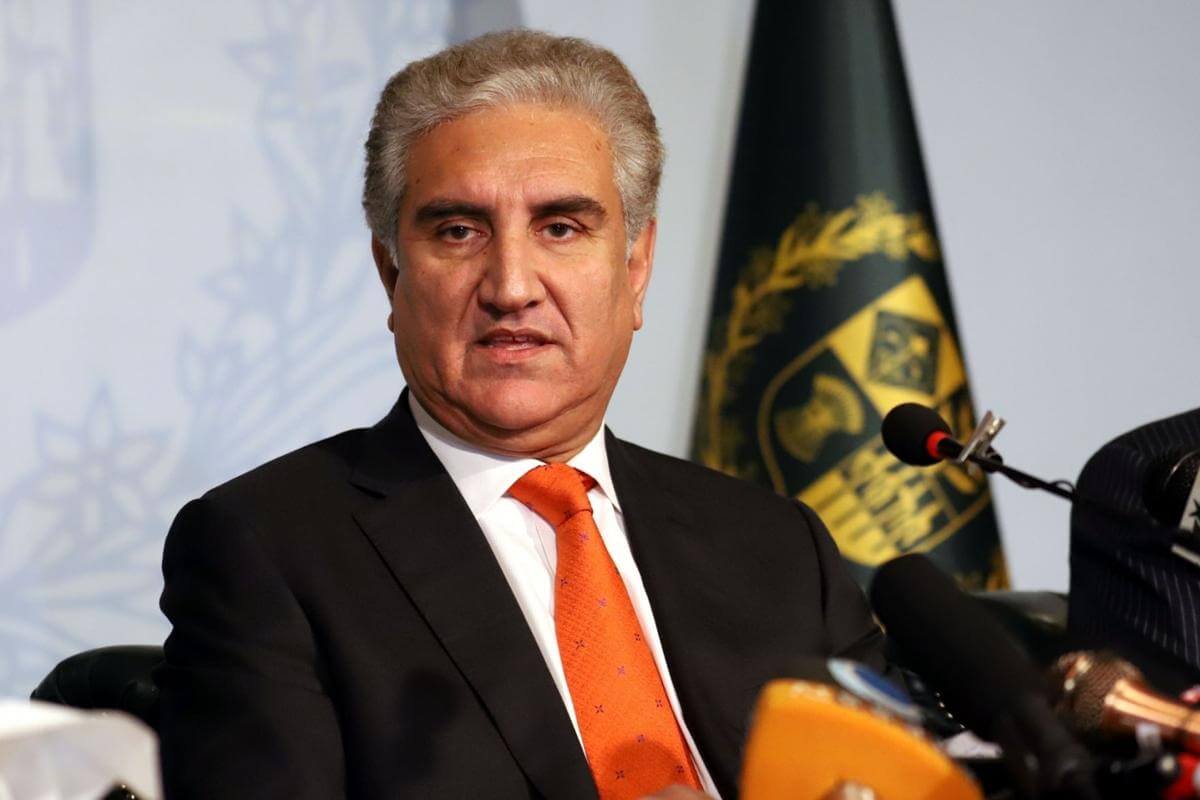Speaking at the Ninth International Maritime Conference in the southern port city of Karachi on Monday, Pakistani Foreign Minister Shah Mehmood Qureshi accused India of raising the chances of conflict in the Indian Ocean. “India’s belligerent and aggressive policies – currently driven by an extremist Hindutva ideology – pose an immediate and pervasive threat to international and regional peace and security,” the minister said. He further added that “Pakistan will continue to take all necessary measures to ensure its security and to maintain credible minimum deterrence.”
The International Maritime Conference was part of a week-long multilateral naval exercise hosted by Pakistan once every two years. It began on Friday in the Arabian Sea and saw the participation of 45 countries, including the US, Russia, China, and Turkey. More importantly, this is the first time since 2011 that Russia participated in a military drill that was also joined by other NATO members. According to the Pakistani military, participating countries took part in a series of manoeuvres and exercises “aimed at practising operational drills and manoeuvres countering non-traditional threats”.
India has indeed changed the balance of naval power in the region. In 2016, the Indian Navy announced that it had formally commissioned the INS Arihant, a nuclear-powered ballistic missile submarine. The Arihant was also the first ballistic missile submarine to be built domestically by a country outside of the United Nations Security Council’s five permanent members. In addition, it also operates another nuclear submarine, the INS Chakra II, which was acquired in 2012 on a 10-year lease from Russia. Further, the INS Arighat, India’s third nuclear submarine, is currently under construction.
In fact, Quereshi touched upon the danger posed by India’s acquisition of advanced weapons systems and the implementation of delivery platforms into its naval arsenal. He raised concerns that such moves threaten the stability of “a region that is critical for global trade flows and security”. Qureshi said, “The Indian Ocean offers promising potential for mutual cooperation and collaboration. But geostrategic competition and the pursuit of military dominance by some states have gravely jeopardised that potential.” He further added that “the international community needs to be cognisant” regarding possible military conflict in South Asia.
These comments come only two weeks after Admiral Amjad Khan Niazi, the chief of Pakistan Navy, made similar remarks about Indian activity in the Indian Ocean. Niazi said, “On our eastern side, India, with an expansionist mindset, is destabilising the region by actions that could imperil regional security.” He also added that Pakistan was “looking at [the] acquisition of modern helicopters, corvettes and shallow-water attack submarines”. Moreover, he said that it was also looking to China “to enhance its long-range anti-submarine warfare and anti-surface warfare capability through induction of long-range maritime patrol jets, unmanned combat aerial vehicles and modernising our existing fleet with state-of-the-art weapons and surveillance systems.”
While it is plausible that the consistent nuclear build-up on India’s part has caused anxiousness in Islamabad, India argues that it is a deterrence to rising Chinese influence in the international waters. Further, India’s position has been that its activities are aimed at stabilising the region through the Quadrilateral Security Dialogue, which includes the United States, India, Japan, and Australia.
Pakistani FM Accuses India of Threatening Peace and Stability in the Indian Ocean
Pakistani foreign minister Shah Mehmood Qureshi blamed India for increasing the chance of conflict in the Indian Ocean by adopting “belligerent and aggressive policies”.
February 17, 2021

SOURCE: The INDIAN WIRE
